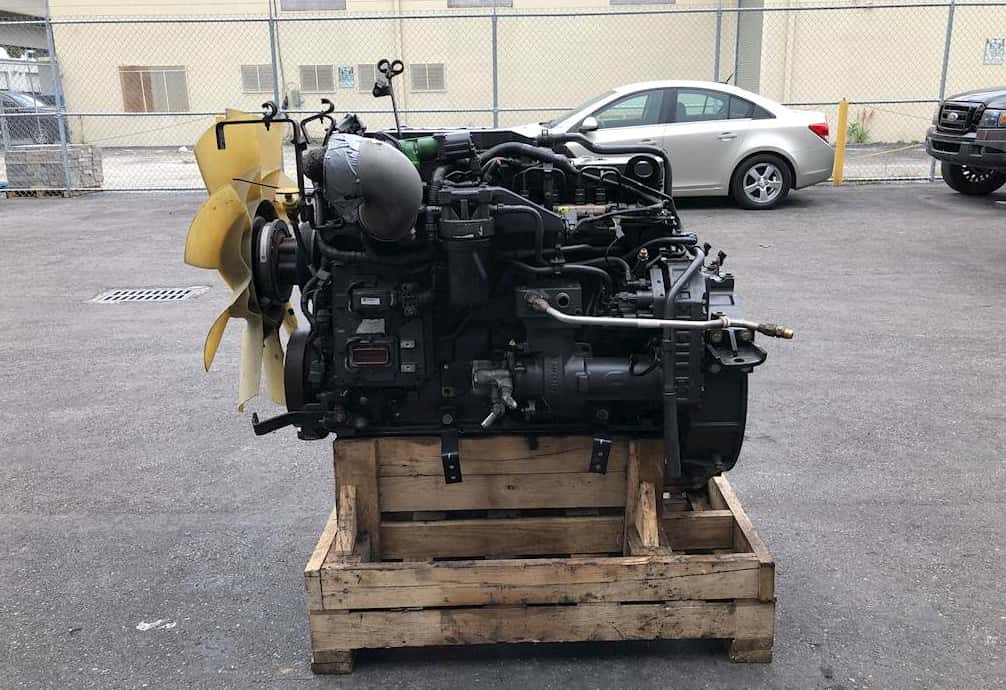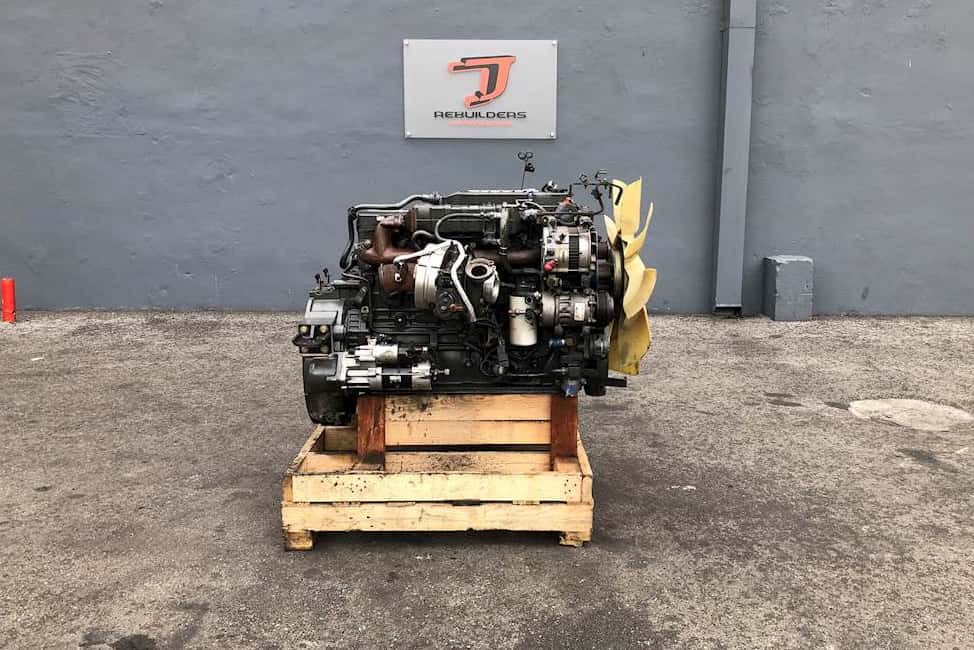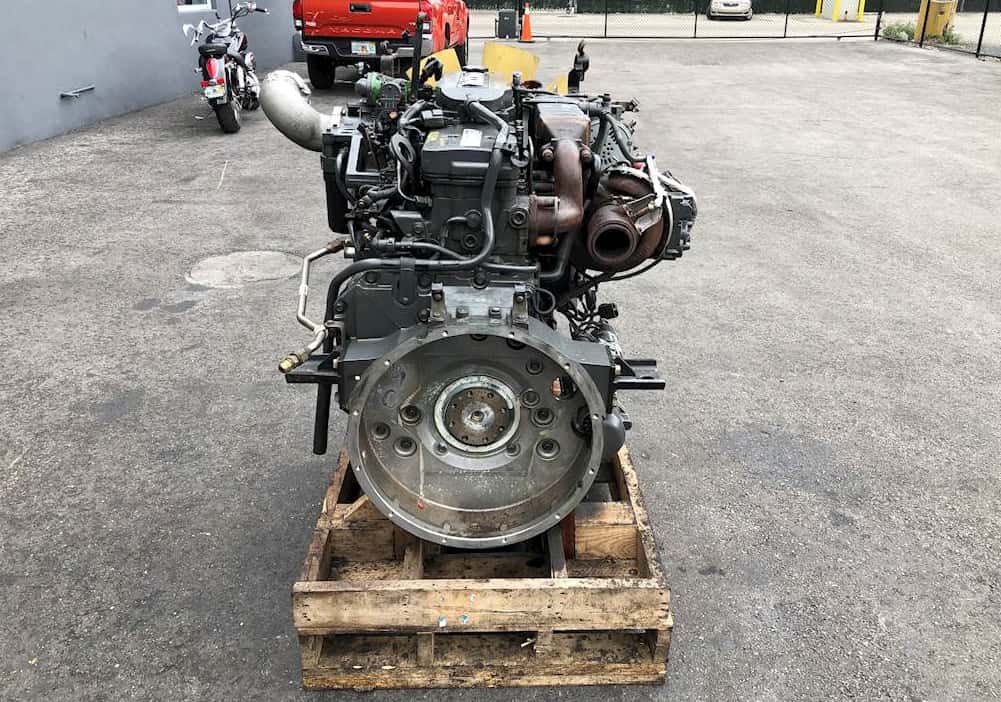While it is known to be a durable and reliable engine, there are still some Paccar PX-7 problems that may come along at one point or another.
The PX-7 is a 6.7-liter engine that uses state-of-the-art common rail technology. This turbo comes with variable geometry and sophisticated controls that ensure optimum efficiency. Moreover, there are other impressive features incorporated to it such as exhaust gas recirculation, an active soot filter, and SCR technology.
Learn more about the Paccar PX-7 engine, some issues that come with it, and whether it is a worthy investment overall. Let’s get started.

The Paccar PX-7
Before we dive deeper into the common Paccar PX-7 problems, let us first discuss some of the unique features of this engine.
Primarily, it is suitable for rigid and heavy duty trucks because of the excellent power and torque it is capable of. In fact, it is ideal for applications as much as 19 tonnes, as well as drawbar applications. The engine has been improved to 239 kw or 325 hp, and the maximum torque is now at 1200 Nm.
There are also composite oil sumps to the engines, which does not only minimize noise but also reduces weight. Engine vibrations coming from the cab and chassis have also been isolated, thanks to the engine mounts.
And with efficient fans, this provides better cooling air flow to help with a low power demand.
When it comes to performance, the engine can deliver optimum torque even at a lower engine speed. This is why driving becomes much easier and more comfortable. Frequent gear changes are not necessary with the revolutionary upgrades to this engine.
And lastly, the engine is fuel efficient, thanks to the improved control to the combustion process. This leads to a very efficient combustion to improve fuel economy.
But there are still some issues to take note of with the Paccar PX-7, and we will discuss them further in the next section.
Paccar PX-7 Problems

Although there are so many impressive features to the Paccar PX-7, there are some important things to note about it. A few problems may come along, which is why you need to analyze these to make sure you achieve the best purchasing decision.
For example, the Paccar engine may have an idler pulley that runs crooked. There is a brass material type of fitting under the steering arm. Once you hear some iron leaking, it is important to get this checked right away.
Additionally, the fan clutch and fan hood can be problematic at times. When you notice a growling or squealing noise, you need to have these components checked right away to get them resolved. Otherwise, a total engine overhaul or engine rebuilding may be required if an engine repair does not suffice.
These are just some of the few things you may want to look into with your Paccar PX-7 when you want to avoid issues with your engine. By detecting these problems early on, you can prevent a more expensive repair and prolonged downtimes once your engine breaks down.
More Information About The Paccar PX-7

Paccar is a renowned company that has been around since 1905. It claims to be one of the best when it comes to the design, manufacturing and customer support of superior quality trucks. There are a few types of Paccar truck engines, and the PX-7 is the most basic among these.
With that in mind, the PX-7 does not have much raw power, as compared to the other types of engines by Paccar. But at the same time, it does not lack dependability and endurance.
At first glance, the PX-7 appears rather small and has 11 different variations that range from as little as 200 hp to as much as 360 hp. The peak torque ratings also start from 520 and to a maximum of 800 pound-feet. There is a very powerful version of this engine type, yet it is definitely weak compared with the MX-13’s weakest version.
With this in mind, some people consider the PX-7 as ideal only for medium-duty commercial trucks and vehicles.
Yet, this does not mean that the engine is without any real worth. Even with a dry weight of less than 1200 lbs, it is light but fuel efficient.
Considering the durability of this engine, Paccar offers a 3-year warranty to it – and with unlimited miles. You can even get an extended warranty if need be.
Overall, the Paccar PX-7 is lightweight, fuel efficient and durable. Maintenance is simple and you only need to keep in mind that it needs maintenance every 15000 miles for fuel filter, filter and oil for 15000 miles, and DEF filter for every 200,000 miles.
Read More: Paccar PX-8 Problems And What To Do With These
Wrap Up
There may be some Paccar PX-7 problems, yet these are not something to be overly worried about. With the compact design, decent performance, and fuel economy, the engine is a good addition for your medium-duty or smaller truck. Maintenance is simple and stress-free, and you can expect it to last for a long time as long as you keep it well-maintained.
What is the maximum weight the Paccar PX-7 pull?
Hi Fred, Its maximum towing capacity depends on the specific configuration of the vehicle, including the axle ratio, transmission, and other factors. However, as an engine, the Paccar PX-7 does not determine the maximum weight a vehicle can pull. It is the chassis and other components that determine the towing capacity.